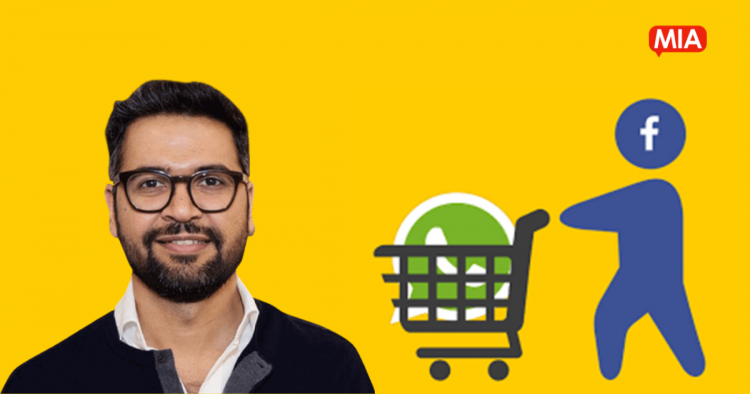Neeraj Arora, former Chief Business Officer at WhatsApp, described Facebook as a “Frankenstein monster” and says he’s not the only one with regrets.
Arora recently tweeted: “In 2014, I was the Chief Business Officer of WhatsApp. And I helped negotiate the $22 billion sales to Facebook. Today, I regret it.”
In a long thread, he goes on to tweet about supposed promises that Facebook, now Meta Platforms, said it would keep if it acquired WhatsApp and how these promises were not kept, which in turn, has negatively impacted users.
WhatsApp was originally founded in 2009, and Arora joined the team in 2011. Facebook originally showed interest in the app in 2012/2013, but its offers were rejected. It wasn’t until 2014 that a deal was agreed upon and Zuckerberg added the app to his collection. In a series of Tweets, Arora explains one of the biggest tech acquisitions ever.
In 2014, Facebook mentioned in its terms of acquisition that it would provide full support for end-to-end encryption, never show ads on the platform, and provide a board seat to one of the co-founders of WhatsApp, Jan Koum, among other terms. WhatsApp defended these values as the acquisition took place. Things later turned sour when WhatsApp began to change in a way the co-founders didn’t like.
Neeraj Arora mentions in a tweet that WhatsApp presented three demands in front of Facebook – as the parent company of WhatsApp, Facebook will never mine user data, never run ads on the platform and never perform cross-platform tracking. While Facebook agreed to these terms at the beginning, and the acquisition took place for a whopping $22 billion, the reports about the 2018 Facebook/Cambridge Analytica scandal threw curtains off the wall of truth.
According to Arora’s comments to Wall Street Journal, he soured on Facebook’s reliance on online advertising and “saw its leadership as overly fixated on competition and rapid growth rather than improving core products”. “They didn’t build with the user in mind,” Arora says.
This thread seems objectionable and full of unfounded insinuation. The recent Twitter acquisition by Elon recontextualises the cost of the WhatsApp acquisition by Facebook with over 5.7X the per-user price. Mark and his team may have been even more astute than analyst sentiment believed.
Parallelly, WhatsApp has been now turned into a propaganda tool that hosts fake news under the garb of new-age autocracy. Not being heavy WhatsApp users, over viewpoint pays heed to the unjustified expectations of WhatsApp founders and associates. Here, the buyer would retain a whack business model and not change it for its ROI after getting rich off the deal of WhatsApp being sold for $22 billion.
Arora’s comments on social media business models come at a time when Tesla and SpaceX chief Elon Musk has placed a bid to acquire microblogging site Twitter for $44 billion. He has claimed that he wants to ease the content rules and promote free speech on the platform by propagating to users how perverse business models cause well-intentioned products, services, and ideas to go wrong.
The Bottom Line:
WhatsApp plays a significant role in global areas crucial to Meta’s future growth. By putting monetization efforts on hold, Meta is focusing on the future of international, cross-platform communications. Through the acquisition of WhatsApp, the company is poised to reach billions of people, and Meta is sure to find a way to eventually cash in.






















